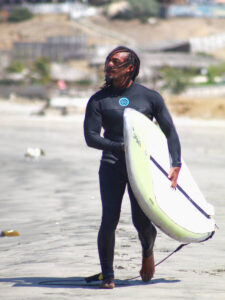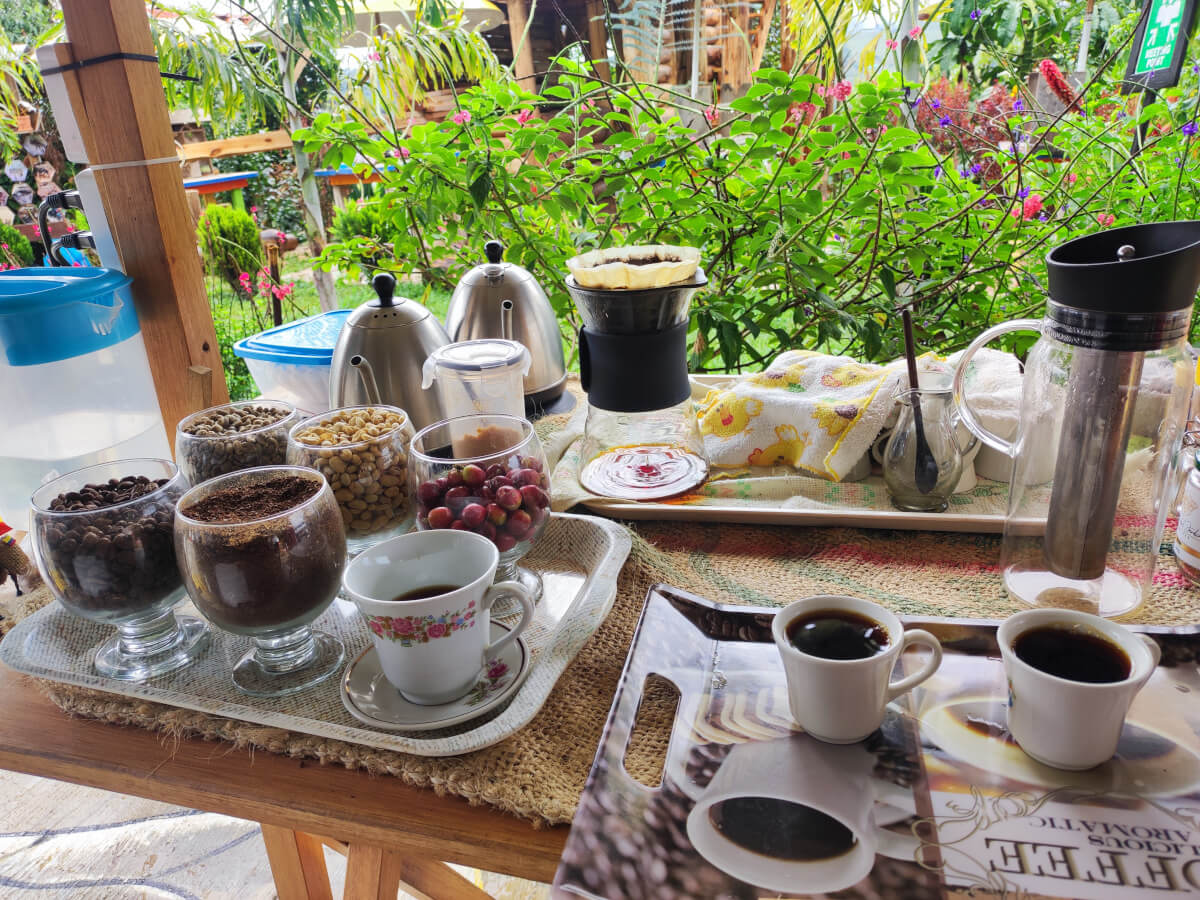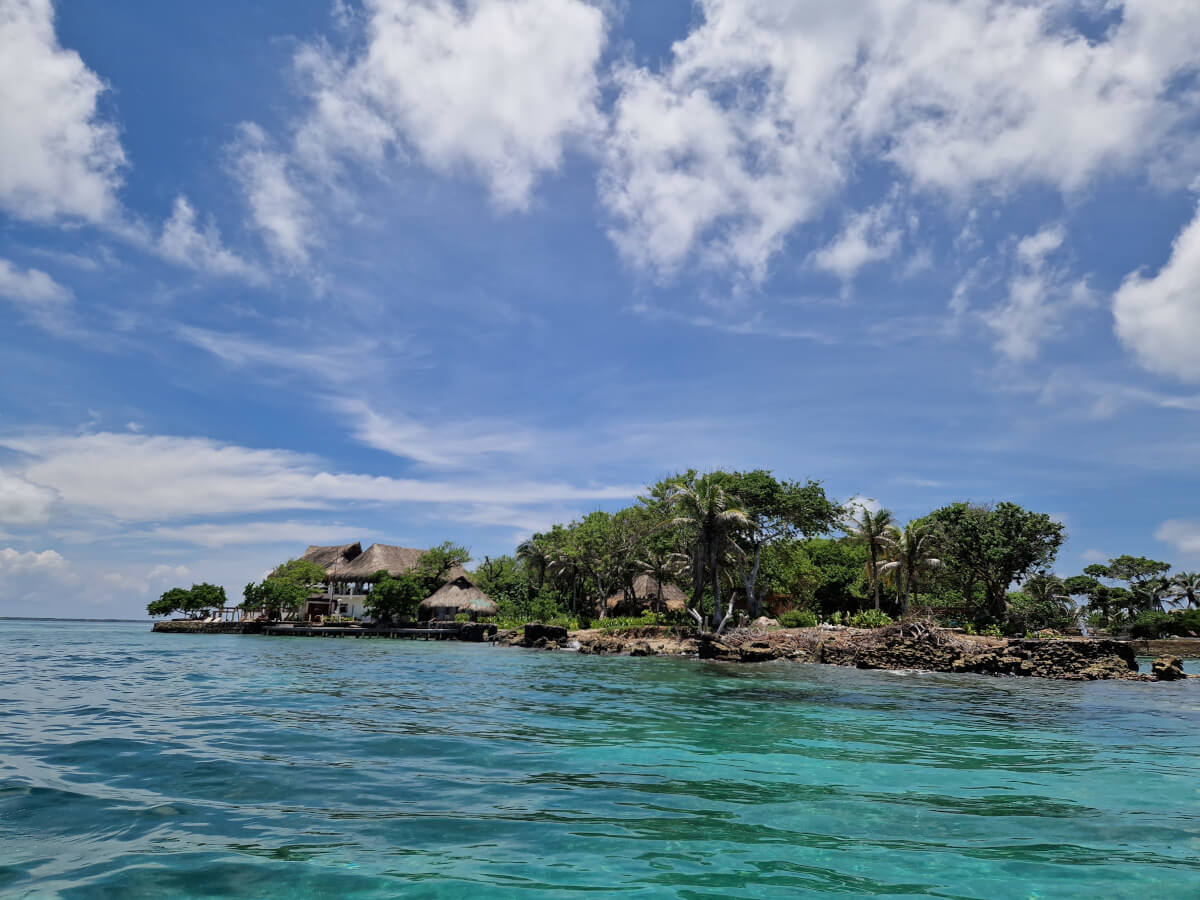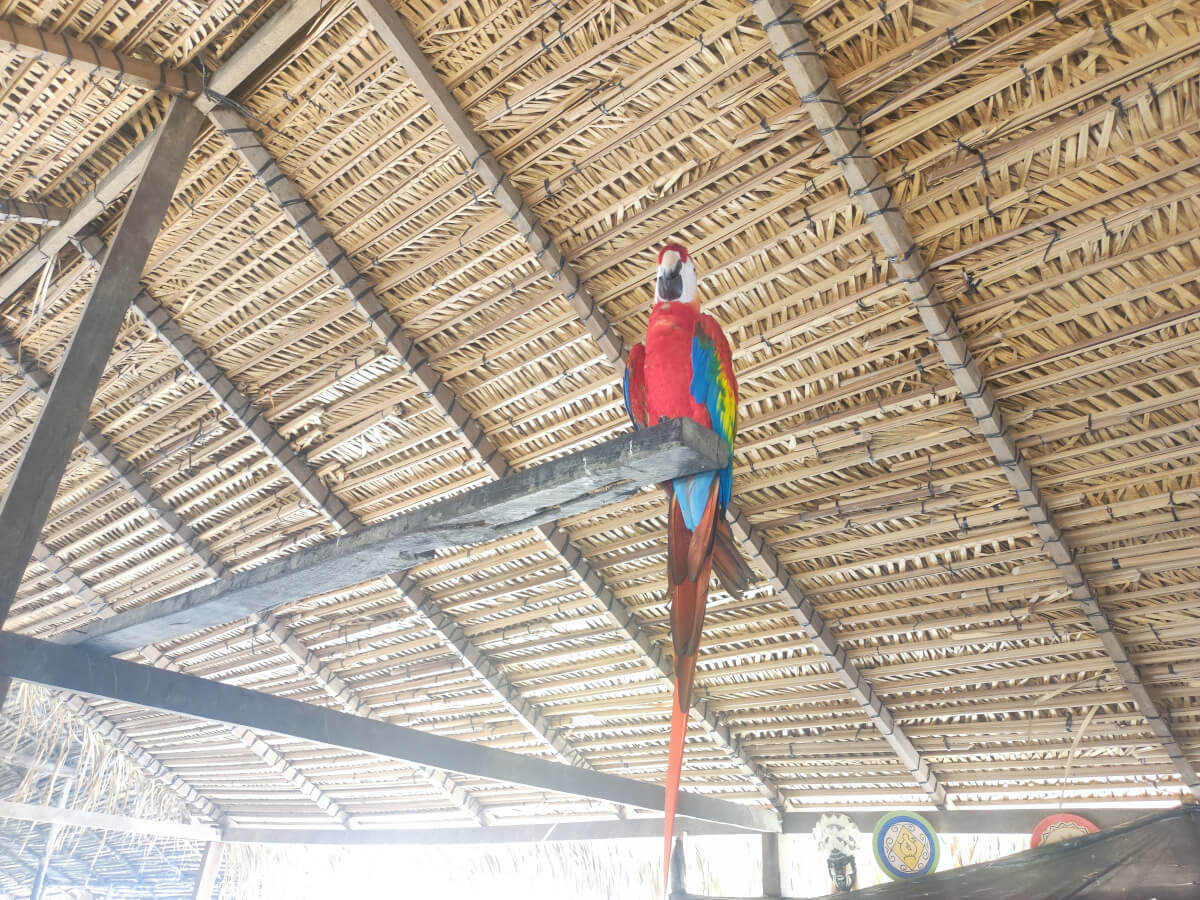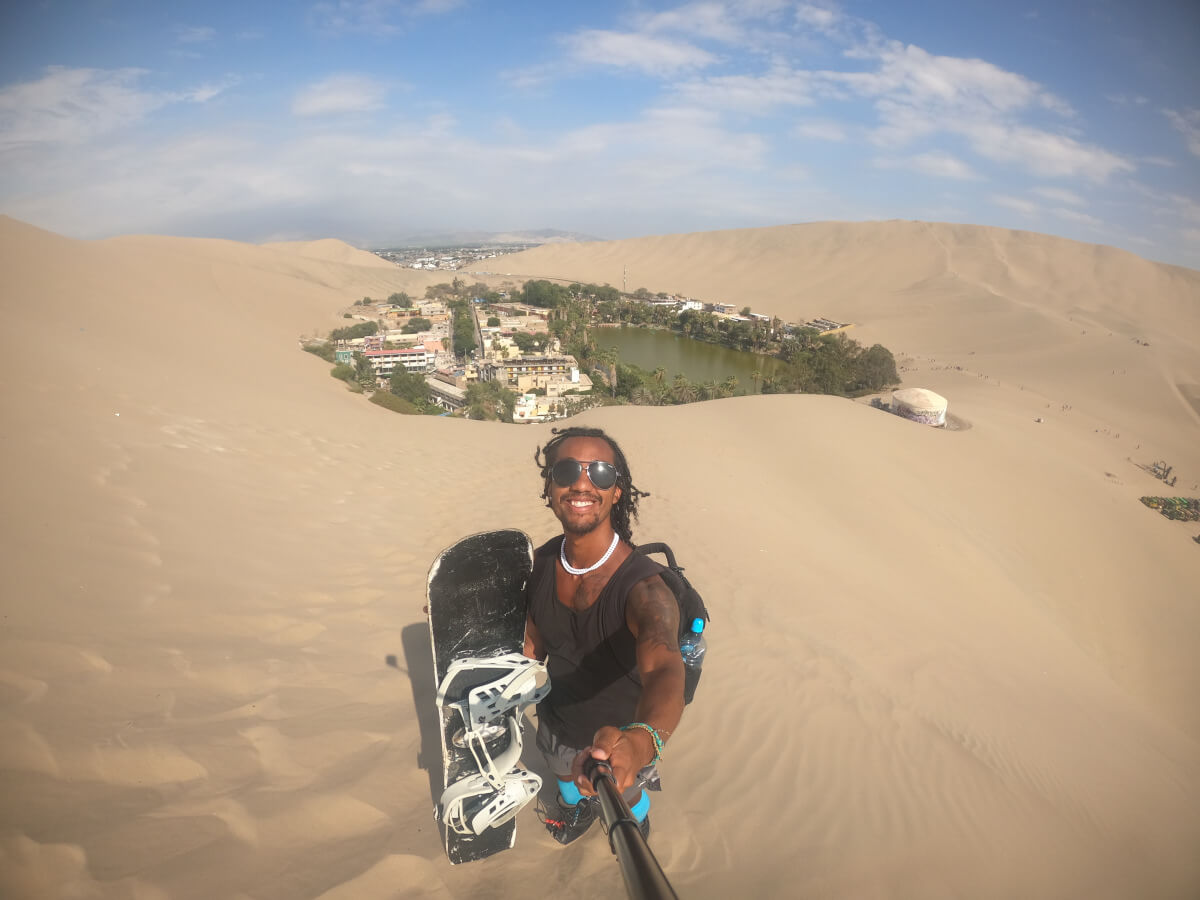Mouamar Dinis Sequeira was born in 1982 in Bissau, Guinea-Bissau. Due to a scholarship, life brought him to the University of Brasilia (UnB) in Brasilia, Brazil. Guinea-Bissau and Brazil speak Portuguese as their official language, so the adaptation was more straightforward for him.
He met his wife Ana in Brasilia during his journey in the country — a Serbian woman who was also a student back then. After a few years of relationship, Ana suggested they move to Serbia after completing their studies, and Mouamar said yes.
When both finished their studies, they began preparing to move to Serbia. Mouamar visited the country for the first time in 2014 when he married Ana.
He spent 40 days in Serbia, getting to know Ana’s family and friends. After that, he returned to Brazil to complete his studies and moved to Serbia permanently in 2015.
If you want to know more details about his experience in Serbia, keep reading.
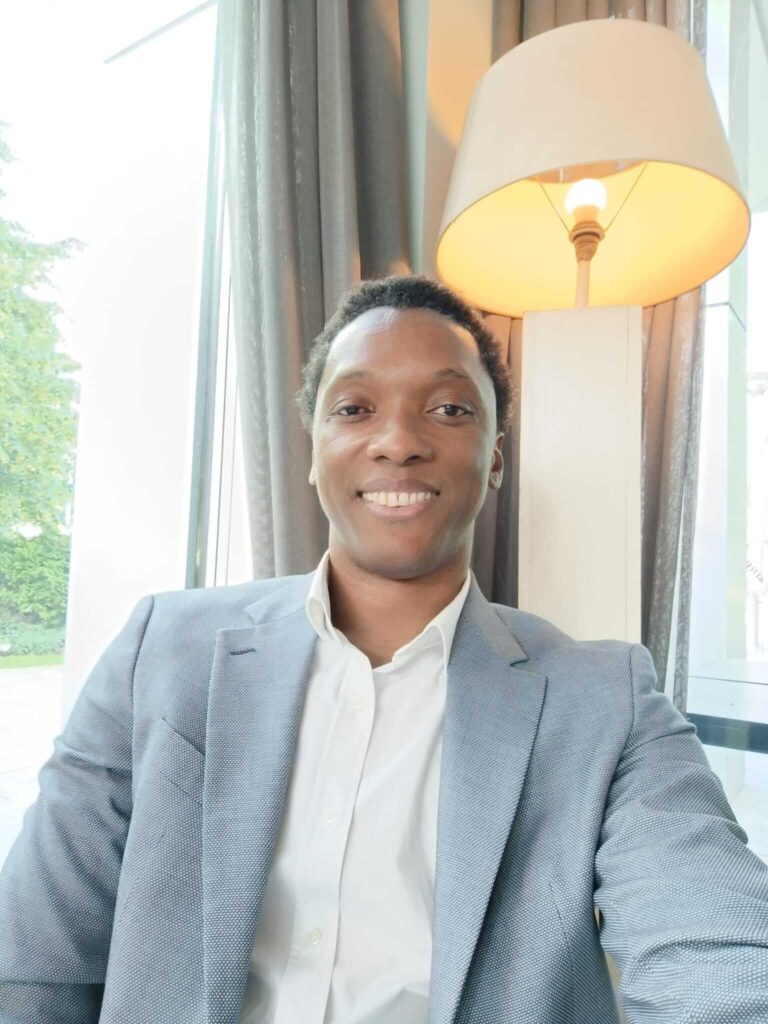
Table of Contents
Mouamar's journey
In this section, you will read a summary of Mouamar’s history in Serbia since he left Brazil in 2015, going through the most important events of his life until 2024. He was very excited to start a new life in another country, and his first visit gave him a good impression of the Serbs and their lifestyle.
The first visit
Mouamar and Ana decided to get married in Serbia, so they went there in 2014. For Ana, it was another visit back home to see her family and friends, but for Mouamar, it was a completely new experience. He had a chance to experience the Serbian culture and meet Ana’s relatives.
After spending 40 days in the country, Mouamar really liked the people and the Serbian lifestyle. People were very open and welcoming; he felt good being there for such a short period.
Back in Brazil, Ana suggested moving to Serbia. They would complete their studies, and their ties to Brazil would weaken unless they decided to find a job and continue their next chapter in South America. Ana felt the best decision for them was to start a new chapter in their lives in Europe.
After his great experience, it was easy for Mouamar to say yes to Ana’s suggestion of moving to Serbia, even though he had a solid base of friends made during his years in Brazil.
The second visit
Mouamar spent one more year in Brazil after his first visit to Serbia. During this year, he completed his studies and started preparing for a new life in the Balkans. Even before meeting his wife, Mouamar knew basic things about Serbia and its people. He soon found himself learning more Serbian songs to learn more about their culture.
The only concern in his mind was related to finding work in Serbia. Mouamar didn’t know English and Serbian then, so he planned to start learning these languages on the go once he landed in Serbia.
After moving to Serbia, Mouamar worked in different places in Belgrade, mostly in Bars, improving his Serbian. After some time, he started working for a call center, where he speaks Portuguese with customers.
Another significant milestone of his life in Serbia was his first daughter, Karla, who came to this world a few years later. Currently, he lives in Belgrade with his family, delighted with everything he conquered so far!!
Questions
In this section, you will read answers to questions I asked Mouamar to better understand his experience in Serbia. Each heading corresponds to one question, followed by his answers.
Q: What did you know about Serbia before moving?
Mouamar: I knew only a few things about the country. Football is one of my favorite sports, so I knew about some Serbian football players, such as Petkovic, Nemanja Vidic, and Meteja Kezman. Petkovic is a very famous football player in Brazil.
There were some things I learned about the Yugoslavia break up in the ’90s, but my curiosity about life in the Balkans was always in my head.
I did not know much about Serbian culture or lifestyle. However, because of some Serbs I met, I knew some general facts about the country even before meeting my wife, Ana.
Q: How was the preparation to move?
Mouamar: In fact, I was in my last year of university studies in Brazil, so when Ana suggested moving to Serbia, my mind was already open to go anywhere after my studies had finished. The mental preparation wasn’t that hard because my time in Brazil was also going to an end.
During many weekends in Brazil, I would visit Ana’s uncle and learn about Serbian songs. I have visited the Serbian embassy in Brasilia several times, learning more and more about their culture with each visit.
Later, I started searching for Serbian songs on the internet and learned to sing a couple of them.
Q: Did you have any concerns about the country?
Mouamar: Finding work was my biggest concern at that time. I don’t speak English, and the economic situation in Serbia is well-known. I also learned during my research that it could be hard to find a job there.
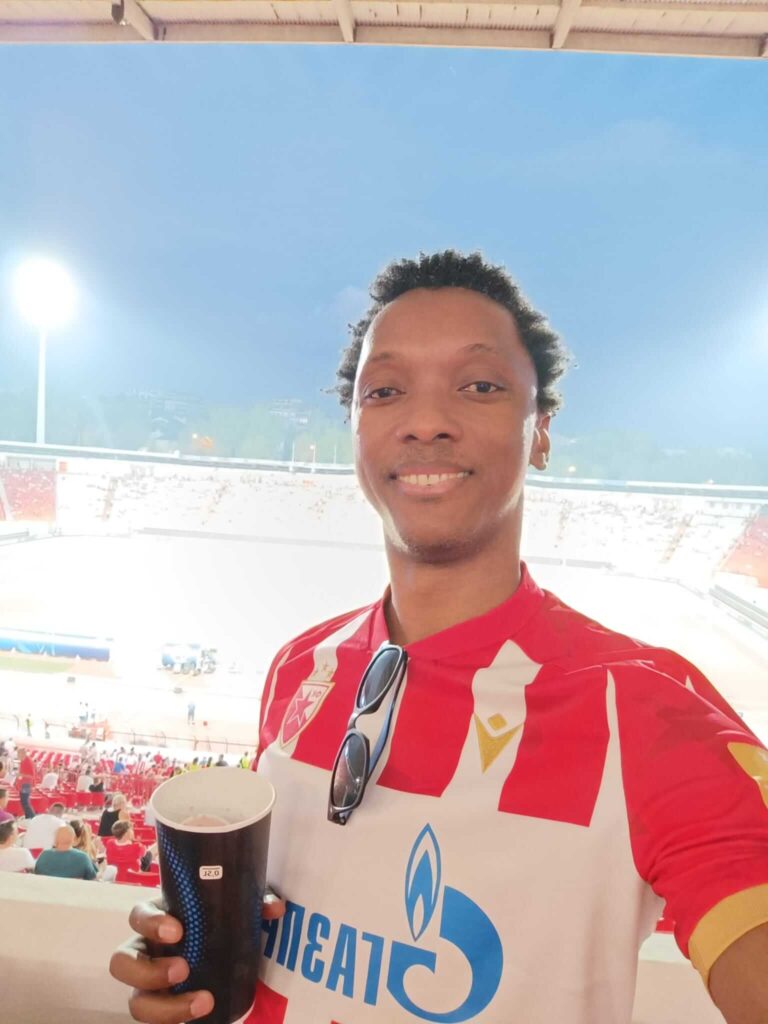
Q: Tell me about the biggest cultural shocks you faced in Serbia.
Mouamar: The biggest cultural shock for me was the cigarettes. People smoke a lot in Serbia. In Brazil, it’s forbidden to smoke indoors, so if someone wants to smoke, they just go outside. In Serbia, people smoke near you anywhere without consideration; most of them don’t ask if it bothers you. It took a lot of time to get used to it; even today, I can’t say I’m used to this behavior.
My eyes would get red because of the smoke. People here smoke near children, and that looks normal to all of them. In the end, I had to make a choice: Try to handle the cigarettes and hang out with people or stay at home alone, so I decided to go out and meet people and face the cigarettes.
Another cultural shock was that I found Serbs to be very loud, like Africans.
Snow and cold weather were logically something to get used to. In Guine-Bissau and Brazil, we don’t have this type of cold weather.
Q: How was the adaption process in Serbia?
Mouamar: It was easy because I am an extrovert and love being around people. The process was smooth since it was easy to communicate and get to know Serbs.
Q: Do you consider Serbia a safe country?
Mouamar: Serbia is a safe country. I have lived in Brasilia in the past, and Belgrade is way safer than Brasilia. Serbia is a country where anyone can freely walk, go to bars, drink, and hang out with friends at any time; it doesn’t matter if you are black or Muslim.
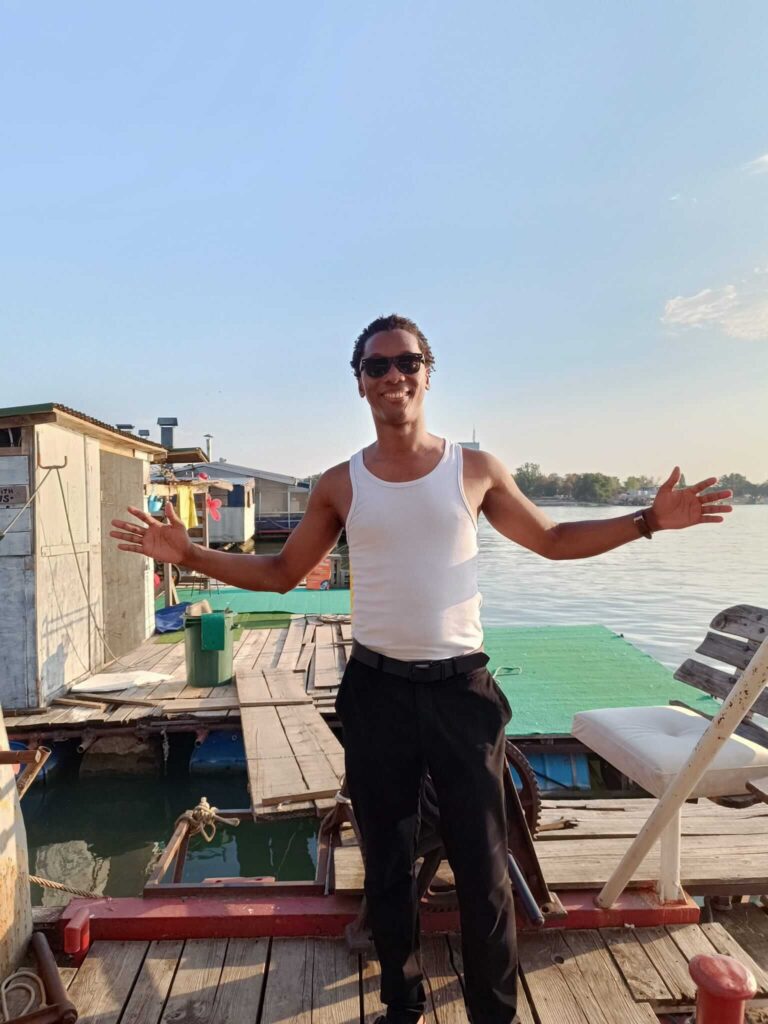
Q: Do you face racism in Serbia?
Mouamar: Yes, one racist situation happened to me once I left my house to go to work. There was an old guy who told me to leave the country immediately. Some people in the area told me this man had some mental issues.
I didn’t bother much since my experience in Serbia is really good. There are racist people everywhere, but Serbia is not a racist country, in my opinion. For me, that was an isolated situation.
I have watched Red Star playing at football matches many times, and it has never happened that someone has said or done something to me. On the contrary, my experiences were always great during those matches.
Q: How do you define your overall experience in Serbia?
Mouamar: My experience so far has been spectacular; I have learned many things and collected countless memories that are dear to me. My greatest memories are from the time I was working on the splav Jaran. That place holds a special place in my heart because I met a lot of cool people there, improved my Serbian a lot, and enjoyed many good moments.
Cacak also brought me several good moments in my life. There was a period of my life when I worked in Kopaonik, and I also had a lot of fun and good memories.
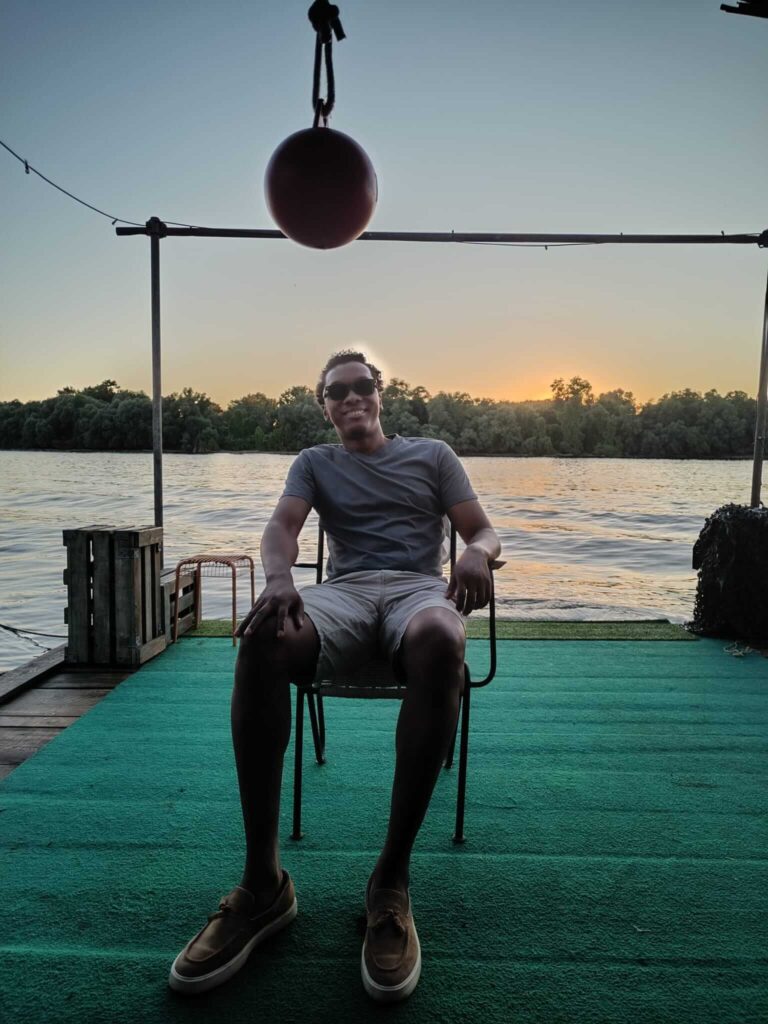
Q: Would you return to live in Guinea-Bissau?
Mouamar: Yes, I would go back home. Guinea-Bissau is my country, and I can foresee many opportunities. It is a country under construction, and with the experience I acquired in Brazil and Serbia, I can build something great for me and my family there.
Another reason that brings me back to Guinea-Bissau is the weather. Even though I got used to the cold winter in Serbia, the seasons in Guinea-Bissau are more appealing to me.
Q: What you say for people of color thinking about visiting Serbia?
Mouamar: Every Black person can and should visit Serbia. The people here are very open and warm. Many believe that Balkan countries are poor or prejudiced, but this is not true.
There are many intelligent people here who know a lot about the history and culture of other countries. They are very curious to learn about your culture and to teach you theirs. You can come here with respect and an open mind, and you can be sure that you will meet people and make good friends.
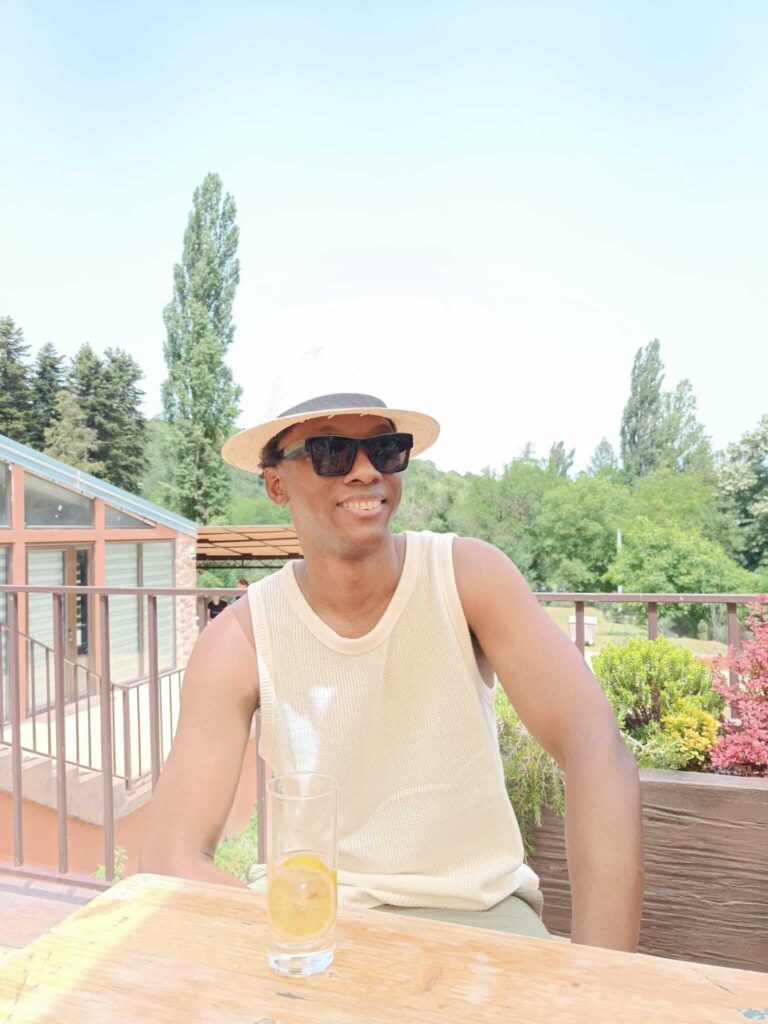
Conclusion
In this article, you learned about Mouamar’s journey in Serbia. After 9 years in Serbia, he thinks back on his life decisions with a smile, knowing that starting a life here was a good choice.
Mouamar can be found on Instagram if you want to contact him: @mouamardinis
Wanna read more stories about Black People in Serbia? I also interviewed Belmira, a woman from Angola who has lived in Serbia for 13 years! Click here to read more about her experience in Belgrade.
I hope you found this article interesting. Don’t forget to share it with a friend planning to visit Serbia. If you want to keep up with the latest blog posts and learn more about ecotourism, adventure travel, and experiences, consider signing up for my newsletter here; it is free!!
See you all in the next article!! Bye!!

